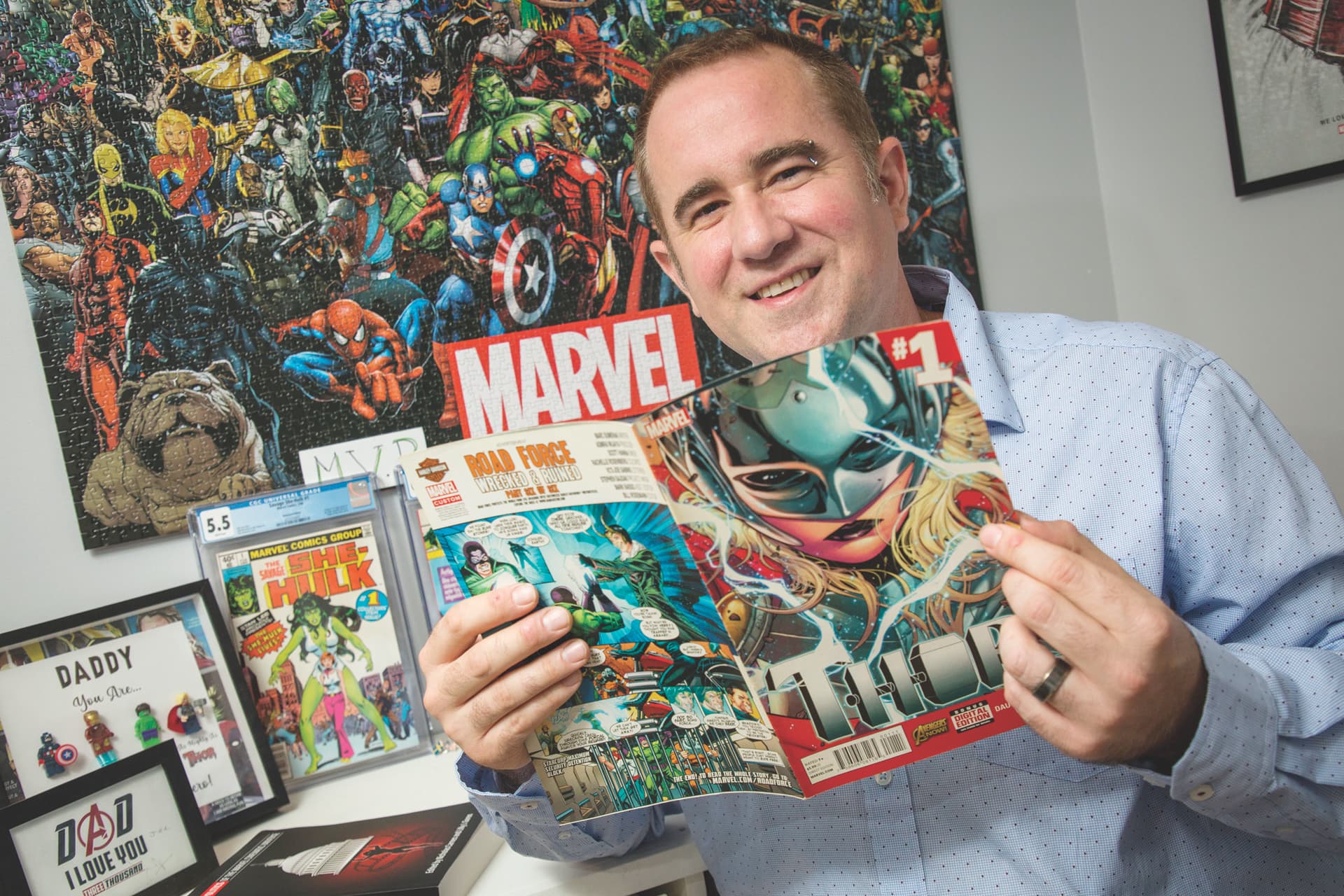By day, Nick Carnes is a professor of public policy at Duke’s Sanford School of Public Policy. By night, he is a Marvel superfan. These worlds collide in “The Politics of the Marvel Cinematic Universe” (University Press of Kansas), a collection of scholarly essays which Carnes co-edited.
Q: Why Marvel?
A: I was in grade school in the ’90s, and among nerdy kids, that’s what was in. Marvel had trading cards. Marvel started creating TV shows. It was just a story of being in the right place at the right time. Technically speaking, the longest written work of fiction in human history is the fictional narrative that is the Marvel comics continuity. It spans over 500,000 pages. That creates opportunities to do things artistically and creatively that no one person can do. Marvel comics have always blended power fantasies with moral fantasies, and with what I’ve always thought of as foundational moral lessons. What is Spider-Man’s core message? With great power must also come great responsibility. One the one hand, that’s a comic book cliché. On the other hand, it’s profound and important advice. I try to teach this core value to my public policy students, because they’re going to go off and be powerful people.

Q: How did you come up with your essay’s topic of how government is represented in the MCU?
A: The research I’ve done in this space has been inspired by the classic criticisms of superhero fiction. One of those is that superhero fiction is politically demobilizing because it presents a world in which the big, important problems can’t be solved, except by these impossible superbeings. I wanted to see if the MCU was really that reductionist. [My research assistants] documented every scene in the original three phases of the MCU that included some representation of the U.S. government. In these representations, are they weak and powerless, giving people the message that the government isn’t a way to solve your problem? Are they corrupt, giving the message that heroes need to come in and do what the evil government will never do? Contrary to the criticism, they were about equally good and bad.
Q: Why study Marvel movies as a political scientist?
A: It’s hard to imagine a way forward in a complicated world or a fraught political process. The whole point of speculative fiction is to get people to imagine the world in a big and different way and to give them an opportunity to play that out in their minds. Most of my research has been in the economic backgrounds of politicians – why it is that almost no one from a lower income or working-class job ever goes on to become a politician. It’s true in almost every democracy in the world. If all you do is study politics as it exists today, it’s easy for things like that to fade into the background. It’s not even something we think about because it’s universal in the political process. Because we don’t see cities, states, countries run by representative groups of the population, we have to imagine how things would be different. That kind of sociological or political imagination is important to cultivate. One way we do that is by engaging with speculative fiction. It’s good for us as scholars. There’s a hot take: Marvel movies are good for you as a scholar. (He laughs.)
Q: Has the book had crossover appeal?
A: I always worry about whether fellow political scientists will think my work is rigorous and well-done. That’s what we do. We criticize one another’s work to make sure we’re doing high-quality research. I also worried that Marvel fans would find it boring or wouldn’t care.
I’ve been most proud of my fellow Marvel fans who have come to this … because of their eagerness for an intellectually serious discussion about this material. One guy in particular came to our book launch who I knew purely from him working at the comic book store that I have my pull lists at. He was not there to talk about Marvel characters. He was there to talk about political science concepts. That’s a dream come true for me, sitting at the intersection of these two worlds, to see both sides come to the table.
